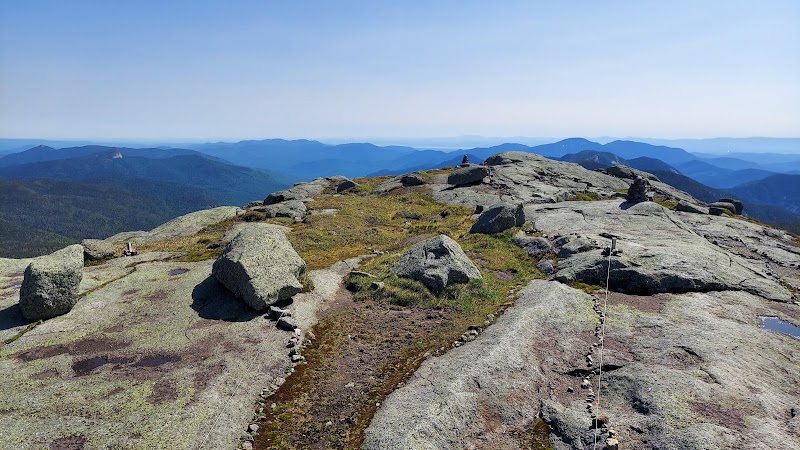
Experience the wild calls and flight of Vermont’s iconic loons up close with the Vermont Loon Center’s immersive events in Barton. These programs blend easy hiking with insightful wildlife education, making them perfect for nature lovers eager to connect with one of Vermont’s most enigmatic birds.
Dress for variable weather
Vermont’s weather can shift fast, especially near water; layering with waterproof options helps you stay comfortable during lake-side walks.
Bring binoculars
Loons often stay distant on the water, so binoculars enhance viewing and provide the chance to observe detailed behaviors without disturbance.
Start early or late in the day
Loons are most active and vocal during dawn and dusk, providing the best wildlife observations and photo conditions.
Carry sufficient water and snacks
Though trails are short and manageable, staying hydrated and energized keeps your focus sharp for spotting loons and engaging with the educational events.
Tracking Loons and Discovery: Vermont Loon Center Events in Barton
Discover the pulse of wild Vermont loons through the Vermont Loon Center’s engaging events in Barton. Set beside Lake Willoughby, where the water holds the calls of these elusive birds, the Center orchestrates programs that combine education, direct wildlife encounters, and conservation efforts. Here, adventure meets purpose—every talk, guided walk, and workshop places you in the thick of loon country without venturing far from the shores.
The events span from spring through early fall, aligning with loon migration and breeding seasons. Expect to navigate easy, forested trails around the lake—distances typically range from 1 to 3 miles, with gentle elevation gains under 300 feet. The terrain invites a balance of casual exploration and study, where the river’s whispers and rustling woods keep you alert and connected.
Each visit offers a chance to witness loons fiercely behaving according to nature’s demands—the male’s haunting call challenges the dawn; parents relentlessly guard their young against unseen threats. Event leaders extend practical tips on identifying loon behaviors, tracking movement, and understanding the fragile ecosystems sustaining these birds.
For those planning your trek, hydration and sturdy footwear are essential; the damp air can catch you unprepared if you underestimate Vermont’s shifting weather. Early morning or late afternoon events maximize wildlife sightings and cooler conditions, while also offering the best lighting for capturing photos of loons bursting into flight or skimming the lake’s surface.
Families, casual observers, and dedicated birders equally benefit from these gatherings—each one anchored by a respect for the environment’s raw character rather than mere sightseeing. In the process, you’ll build an active connection with the wild loons, learning how to advocate for their preservation beyond Barton’s borders.
The Vermont Loon Center provides not just knowledge but a gateway to engaging Vermont’s lakes in an adventure that is part nature hike, part wildlife seminar—and wholly rewarding. Prepare for moments where nature asserts itself fiercely yet invites your quiet attention. It’s an experience that educates, challenges, and inspires, rooted in real-world discovery and stewardship of this vibrant corner of Vermont.
Nearby Trips
All Adventures
Boat Charters
Water Activities
Adventures near Barton, Vermont
Discover the unique and memorable adventures that make Barton, Vermont special.
Frequently Asked Questions
What makes loons unique to Vermont’s lakes?
Loons are remarkable for their haunting calls and diving ability—adapted to cold, clear lakes like those around Barton. They require quiet, undisturbed water to breed and raise chicks, making areas like Lake Willoughby critical habitat.
Are the Vermont Loon Center events suitable for children?
Yes, many events are family-friendly and designed to engage young naturalists with interactive learning and safe trail access.
How can I best support loon conservation during visits?
Observe loons from a distance to avoid nesting disturbances, follow trail guidelines, and participate in Center-led pledges or citizen science initiatives.
What wildlife might I see alongside loons at these events?
Expect to spot great blue herons, kingfishers, and a variety of songbirds; occasionally, otters or beavers may appear near the lakeshore.
Are dogs allowed on Vermont Loon Center trails or events?
Pets are generally discouraged during events to avoid disturbing birds, but check event specifics; some trails permit leashed dogs outside program hours.
Can I photograph loons during the events?
Yes—photography is encouraged, especially using telephoto lenses to capture loons without causing stress. Early morning light offers ideal conditions.
Recommended Gear
Waterproof hiking boots
Protects feet from damp trail conditions and uneven terrain near lake edges.
Binoculars
Essential for spotting loons without disturbing them, especially at greater distances.
Insect repellent
Keeps mosquitoes and black flies at bay during warmer months close to water.
Layered clothing
Enables quick adjustment to temperature drops during early mornings or late afternoons.
Local Insights
Hidden Gems
- "The nearby Chapman Bay overlook offers a quiet spot for panoramic lake views with fewer visitors."
- "The Loon Center’s floating observation platforms provide unique water-level perspectives of loon activity."
Wildlife
- "Common loons, painted turtles basking on logs, occasional bald eagles circling above, and the calls of wood thrushes in the surrounding forest."
History
"The Vermont Loon Center builds on decades of local and scientific efforts to monitor and protect loons, a species long linked with Vermont’s environmental identity and cultural heritage."
